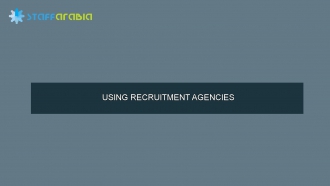|
Salary negotiations can be tough even for the most seasoned professionals. After all, no one wants to blow the job offer because of too lofty expectations. On the flip side, you don’t want to undersell yourself by accepting a lowball offer. “Negotiation is an art, not a science,” says Vinda Souza, senior marketing manager at Bullhorn, the recruiting software company. “Each industry, role, and company is different.” Finding the right balance can be tough but not impossible granted you don’t make any of these five mistakes. Mistake No. 1: Not knowing your worth
When it comes to buying a car, purchasing a home or spending money on a new TV, most of us do our homework before making a decision. Yet that same foresight often goes out the window with salary negotiations. Whether you are currently employed or out of work you are going to want to know how much your worth before you can even consider an offer. “A lot of people don’t do their homework upfront so they don’t know what the market rate is for their skills set,” says Paul McDonald, senior executive director at staffing firm Robert Half International. “There are a lot of tools out there (on the Internet) to see you true worth.”
Mistake No. 2: Discussing salary upfront
In this fast paced society we live in, its understandable that you would want to get salary out of the way early in the process so to not waste anyone’s time but it turns out that could come back to bite you. But think about it: you may put yourself out of the game if you’re requirements are too high before you had a chance to impress. Or worse you may have gotten paid even more if you just held out a little bit. “The ideal time to discuss salary is at the end of the interview process, when your prospective employer has selected you as the ideal candidate,” says Souza. Mistake No. 3: Accepting the first offer you get
Far too often job seekers will accept the first offer that comes their way out of fear the prospective employer will simply move on the next candidate. That may have been true a few years ago but it isn’t in this environment where there is a war on talent for sought after skill sets. “Talking about money can be uncomfortable, but the truth is that the majority of companies expect you to negotiate your salary,” says Souza. “Be respectful of any offer that is given to you, but be sure to stand up for yourself, and push for a better offer.” When considering the offer it’s important to keep in mind other non-salary incentives andperks the employer is offering, says McDonald of Robert Half. Your compensation is a total package and salary is just one component of it.
Mistake No. 4: Lying about how much you are making
You want to get the most money possible, but if it takes dishonesty to get there it may not be worth it. After all, if your potential employer finds out you are being misleading or they catch you in a straight out lie, the likelihood of offering you the position diminishes greatly. And if it turns out you get the job and they find out later on you lied, chances are high you will get fired. “Don’t use that as a negotiation tactic,” says McDonald. “Take the ethical high ground.” Mistake No.5: Opening up negotiations immediately after getting the offer
Whether the offer is in your acceptable range or is way too low, you want to give yourself some time to digest the compensation package before making your next move. Chances are if the offer was low you are going to be angry or insulted and if you open up talks when your emotions are high it can end badly, says Avinda. Instead ask for all the details of the offer including inquiring about your opportunities to grow in the company. A lowball salary may be palatable if you know you can move up in a couple years. “Remember to consider all of the factors going into your decision,” says Souza. For instance “how much you want to work for the company; whether you need to relocate or adjust your lifestyle to fit the job; and non- salary items like a signing bonus, stock options, 401k matching, and vacation time all have a place at the negotiation table.” |

















